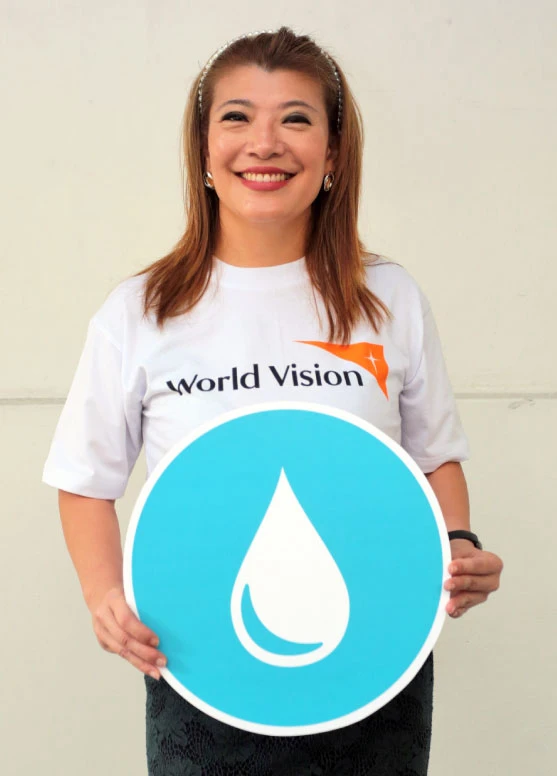Have you noticed how many times you turn on the water faucet daily? How about how many cups of water you had today? Or how much washing you do in a day? These are just a few instances of how water is readily available and useful to us.
While it’s something people in the developed world take for granted, clean drinking water is one of the world’s greatest needs. According to the World Health Organization, 785 million people lack even a basic drinking-water service, including 144 million people who are dependent on surface water.
When you can’t access safe water, you can’t stay healthy, go to work, go to school, or grow your crops; this leaves people trapped in poverty. So, how does clean water make a difference?
Click the orange boxes to read further

On average, women and children (especially girls) in developing countries make a six kilometre roundtrip to get to a clean water source; that adds up to 200 million hours every day collecting water for their families. That is a lot of time, especially when you’re carrying heavy buckets of water. This reduces the time they can spend with their families, studying or even playing with friends.

Travelling long distances to collect water or to use a toilet exposes women and girls to the ever-present possibility of being attacked and abused. It also imposes a higher risk on a pregnant woman as carrying heavy loads of water can be dangerous — and drinking unsafe water puts her child at greater risk of disease.

While clean water helps prevent disease, dirty water causes it. More than 800 children under five years old die every day from diarrhoea caused by contaminated water, poor sanitation, and improper hygiene. Dirty water is also linked to cholera, dysentery, hepatitis A, typhoid, and polio. But combined with proper sanitation and hygiene, clean water can cut preventable child deaths by up to 57%.

Women all over the world spend more time carrying water and doing household chores than men, which means less time to pursue their dreams. This leads to what is called time poverty. A girl or woman may want to get an education, start a business, or participate in her community at the same level her male counterparts do, but if she has to spend hours every day collecting water, she may miss out on those opportunities.

Almost half the world’s schools lack clean water and basic hygiene facilities, putting children’s health at risk while some have to miss school. This especially takes a toll on girls, who are forced to miss classes while on their periods. Clean water and sanitation interventions reduce school absenteeism among girls by 50%. With proper education, they have greater future earning potential, are more likely to send their own children to school, and are less vulnerable to violence and exploitation.

Up to half of the malnutrition faced by the world’s undernourished people isn’t just because of a lack of food. It’s because they suffer from chronic infections and illnesses, dirty water, poor sanitation and poor hygiene. With clean water, chronic malnutrition can be reduced by 40% because children can absorb more nutrients from their food.

Better access to clean water, sanitation and water management creates a tremendous opportunity for the vulnerable and is a progressive strategy for economic growth. With clean water, farmers can irrigate gardens for crops, while families can generate income by making soap, raising livestock and more. Investing in water, sanitation, and hygiene interventions can help with poverty reduction, economic productivity and environmental sustainability — that’s the power of clean water!

2. Sponsor a child through World Vision (or make a donation) to give them access to sustainable clean water. This will help children to attend school and improve their health.
3. Be mindful of the simple things you do. For example, try brushing your teeth while taking a shower to save water.
Access to clean water changes everything; it’s a stepping stone to development. When people, especially children, have access to clean water, sanitation, and hygiene, they lead healthier and more successful lives. This is why World Vision is dedicated to providing clean water and sanitation in every community we work in.
Our goal of clean water for every child is achievable.
Speak up and donate to World Vision’s water projects today! For RM35 a month, you can help support long-term World Vision initiatives, which include clean water projects. Or make a one-time donation (any amount) to provide clean water to children and families in need.
Be among the first to receive the latest news and updates on our work, stories of children and communities, and opportunities to make a difference.